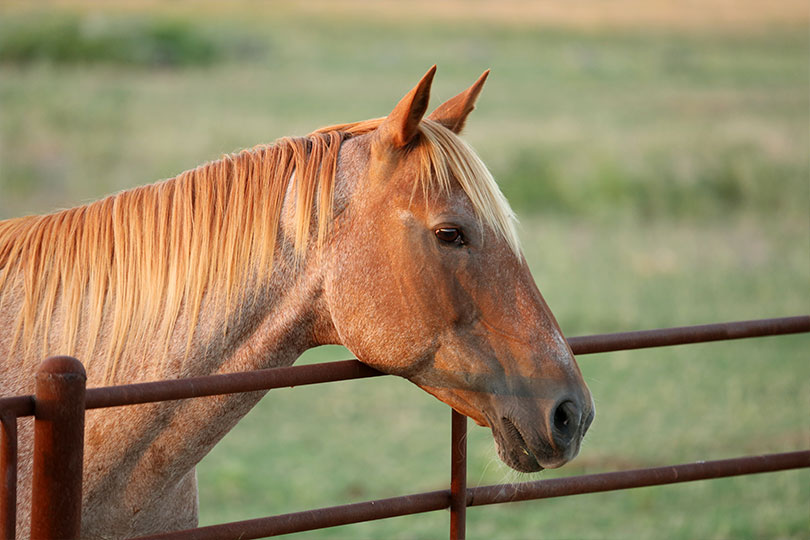By Shelby Shank
Field Editor
The Texas Animal Health Commission (TAHC) received confirmation of equine herpes myeloencephalopathy (EHM), the neurologic disease linked to equine herpes virus (EHV-1), in a Texas Quarter Horse on Nov. 18.
The affected horse attended the 2025 WPRA World Finals and Elite Barrel Race event in Waco Nov. 5-9.
TAHC staff are working closely with event coordinators, horse owners and veterinarians to respond to the outbreak, take measures to protect equine and prevent further spread of the virus.
Participants from the event have been notified by TAHC and are being monitored under hold orders.
Owners of horses that attended the event or may have been in contact with these horses or exposed to EHM should work with their veterinarian to create monitoring and diagnostic plans to take precautions.
TAHC advises all owners to take extra precautions during this time. Tack, boots, equipment and grooming supplies should be thoroughly cleaned and disinfected.
Horses returning from the event should be isolated for at least two weeks, and their temperatures should be checked twice daily for 14 days after the last possible exposure.
If a horse develops a fever over 102.5 degrees Fahrenheit or begins showing signs of illness, owners should call their veterinarian immediately.
When feeding and doing chores, returning or potentially exposed horses should be handled last. Owners are encouraged to wear separate boots and coveralls when working with these horses, remove them afterward and wash their hands before interacting with other animals.
Horses affected by EHM may show a variety of signs, including a fever of 102.5 degrees Fahrenheit or higher, nasal discharge, weakness, lack of coordination or hindquarter weakness. Some horses may lean against fences or walls to help maintain balance, appear lethargic, dribble urine, tilt their head, show reduced tail tone or experience penile paralysis.
These signs can also be associated with other conditions, and diagnostic testing is necessary to confirm infection.
The full extent of this outbreak is still unknown. Cases have progressed rapidly and severely, and several horse deaths suspected to be linked to EHM have been reported. Investigations are ongoing, but quick action and strong biosecurity are critical, TAHC officials said.
The agency urges event organizers to take every precaution to reduce further spread, including canceling or postponing equine events until the situation becomes clearer.
“Equine owners are encouraged to stay vigilant and monitor animals closely,” said Dr. Bud Dinges, TAHC executive director and state veterinarian. “Based on current evaluations and the evolving situation, we highly recommend equine owners take this virus seriously and weigh potential risks when commingling equine.”
Owners who suspect their horse may have been exposed to EHV-1 should contact their veterinarian.
Additional resources are available, including the Equine Herpes Myeloencephalopathy Fact Sheet and the Equine Biosecurity Guide.
The equine industry is encouraged to obtain the latest information on equine disease events nationwide on the Equine Disease Communication Center (EDCC) website. Subsequent Texas EHM cases will be posted on the site.


Leave A Comment